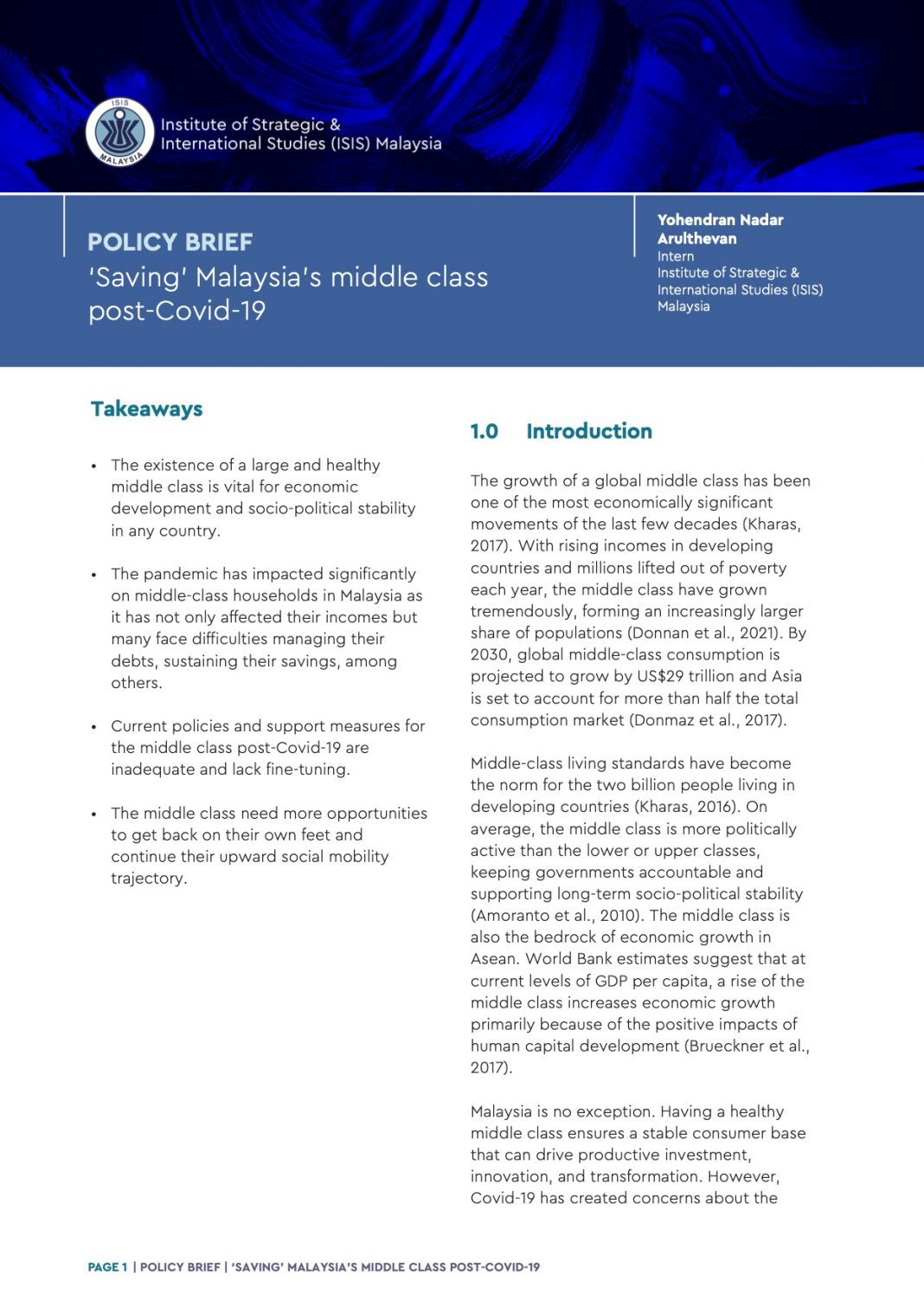Introduction
The growth of a global middle class has been one of the most economically significant movements of the last few decades (Kharas, 2017). With rising incomes in developing countries and millions lifted out of poverty each year, the middle class have grown tremendously, forming an increasingly larger share of populations (Donnan et al., 2021). By 2030, global middle-class consumption is projected to grow by US$29 trillion and Asia is set to account for more than half the total consumption market (Donmaz et al., 2017).
Middle-class living standards have become the norm for the two billion people living in developing countries (Kharas, 2016). On average, the middle class is more politically active than the lower or upper classes, keeping governments accountable and supporting long-term socio-political stability (Amoranto et al., 2010). The middle class is also the bedrock of economic growth in Asean. World Bank estimates suggest that at current levels of GDP per capita, a rise of the middle class increases economic growth primarily because of the positive impacts of human capital development (Brueckner et al., 2017).
Malaysia is no exception. Having a healthy middle class ensures a stable consumer base that can drive productive investment, innovation, and transformation. However, Covid-19 has created concerns about the erosion of the middle class. The pandemic led to some challenges unique to the middle class, such as a drop in discretionary buying power, dwindling savings, decline in social mobility. As such, a review and restructuring of current policies may be necessary to ensure the long-term recovery and growth of the middle class post-Covid-19.
This report will look at Malaysia’s middle class, explore their challenges during the pandemic, and analyse government support for middle-class households under the numerous stimulus packages. It will also share insights from stakeholder engagement with five middle-class households of different sizes, races, state and location (urban, semi-urban or rural). At the end of this report, we propose policies that can help revitalise the middle class post-Covid-19.
By
Yohendran Nadar Arulthevan
Intern
Institute of Strategic & International Studies (ISIS) Malaysia





